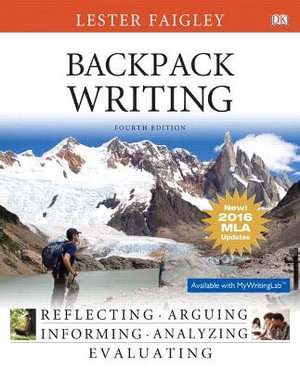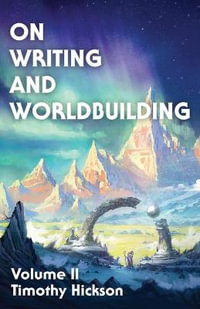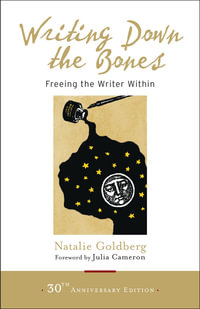PART 1: THE ACADEMIC WRITER 1. Thinking as an Academic Writer Explore Through Writing
Understand the Process of Writing
Understand the Rhetorical Situation
Analyze Your Assignment
Think About Your Genre
Think About Your Medium
Think About Your Topic
Think About What Your Readers Expect
Think About Your Credibility
2. Reading as an Academic Writer Become a Critical Reader
Become a Critical Viewer
Annotate Academic Readings
Recognize Fallacies
Write a Summary
Write a Paraphrase
Move from Reading to Invention
Start an Annotated Bibliography
Synthesize Readings and Visuals
3. Planning Move from a General Topic to a Writing Plan
Narrow Your Topic
Write a Thesis
Make a Plan
4. Drafting Draft with Strategies in Mind
Write a Zero Draft
Draft from a Working Outline
Start Fast with an Engaging Title and Opening Paragraph
Develop Paragraphs
Conclude with Strength
Link Within and Across Paragraphs
5. Revising Revising and Editing
Evaluate Your Draft
Respond to Others
Pay Attention to Details Last
Revise Using your Instructor's Comments
PART 2: THE PERSUASIVE WRITER Writing to Reflect
6. Reflections Writing a Reflection
What Makes a Good Reflection?
Reflections About Visuals
REFLECTIONS
Sue Kunitomi Embrey, Some Lines for a Younger Brother . . .
Alisa Valdes-Rodriguez, My Hips, My Caceras
Amy Tan, Mother Tongue
How to Write a Reflection
STUDENT EXAMPLE (MLA Style)
Janine Carter, The Miracle Quilt
Projects
Writing to Inform
7. Informative Essays and Visuals Reporting Information
What Makes Good Informative Writing?
Informative Visuals
INFORMATIVE ESSAYS AND VISUALS
Katherine Mangan, Is Faster Always Better?
Shane D. Johnson, Aiden Sitebottom, and Adam Thorpe, Bicycle Theft
How to Write to Inform
STUDENT EXAMPLE (MLA Style)
Lakshmi Kotra, The Life Cycle of Stars
Projects
Writing to Analyze
8. Rhetorical and Visual Analyses Writing an Analysis
Writing a Rhetorical Analysis
Writing a Visual Analysis
RHETORICAL AND VISUAL ANALYSES
Tim Collins, Straight from the Heart
Frank Gehry, The Ray and Maria Stata Center, Massachusetts Institute of Technology
How to Write an Analysis
STUDENT EXAMPLE (MLA Style)
Chris Gonzalez, Russell Lee's Pie Town Photographs
Writing Arguments
9. Causal Arguments Writing a Causal Argument
What Makes a Good Causal Argument?
Visual Causal Arguments
CAUSAL ARGUMENTS
Laura Fraser, The French Paradox
Tom Vanderbilt, Why I Became a Late Merger (and Why You Should Too)
How to Write a Causal Argument
STUDENT EXAMPLE (MLA Style)
Armandi Tansel, Modern Warfare: Video Games' Link to Real-World Violence
Projects
10. Evaluation Arguments Writing an Evaluation Argument
What Makes a Good Evaluation Argument?
Visual Evaluations
EVALUATION ARGUMENTS
Bill McKibben, The Only Way to Have a Cow
Rachel Laudan, In Praise of Fast Food
How to Write an Evaluation
STUDENT EXAMPLE (MLA Style)
Jenna Picchi, Organic Foods Should Come Clean
Projects
11. Position Arguments Writing a Position Argument
What Makes a Good Position Argument?
Visual Position Arguments
POSITION ARGUMENTS
Ted Koppel, Take My Privacy, Please!
Michael Pollan, Eat Food, Food Defined
How to Write a Position Argument
STUDENT EXAMPLE (MLA Style)
Patrice Conley, Flagrant Foul: The NCAA's Definition of Student Athletes as Amateurs
Projects
12. Proposal Arguments Writing a Proposal Argument
What Makes a Good Proposal Argument?
Visual Proposals
PROPOSAL ARGUMENTS
Thomas Jefferson, The Declaration of Independence
Glenn Loury, A Nation of Jailers
How to Write a Proposal Argument
STUDENT EXAMPLE (MLA Style)
Kim Lee, Let's Make It a Real Melting Pot with Presidential Hopes for All
PART 3: THE MULTIMEDIA WRITER
13. Composing in Multimedia Understand the Process of Composing in Multimedia
Take Pictures That Aren't Boring
Create Graphics
Create Audio
Create Video
Create a Photo Essay
14. Designing for Print and Digital Readers Start With Your Readers
Use Headings and Subheadings Effectively
Design Pages
Understand Typography
Evaluate Your Design
PART 4: THE WRITER AS RESEARCHER Guide to Research
15. Planning Research Analyze the Research Task
Ask a Question
Draft a Working Thesis
16. Finding Sources Identify the Kinds of Sources That You Need
Search Using Keywords
Find Sources in Databases
Find Sources on the Web
Find Multimedia Sources
Find Print Sources
Create a Working Bibliography
17. Evaluating Sources Determine the Relevance and Quality of Sources
Determine the Kind of Source
Determine If a Source Is Trustworthy
18. Writing the Research Project Write a Draft
Avoid Plagiarism
Quote Sources Without Plagiarizing
Summarize and Paraphrase Sources Without Plagiarizing
Incorporate Quotations
Incorporate Visuals
Review Your Research Project
19. MLA Documentation Elements of MLA Documentation
Entries in the Works-cited List
In-text Citations in MLA Style
Books in MLA-Style Works Cited
Web Sources in MLA-Style Works Cited
Other Sources in MLA-Style Works Cited
Visual Sources in MLA-Style Works Cited
Sample MLA Paper
George Abukar
It's Time to Shut Down the Identity Theft Racket

























